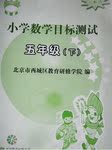题目内容
Black Friday is the Friday following Thanksgiving Day in the United States. It has been regarded as the beginning of the holiday shopping season. Although it’s not an official holiday, millions of employers give their employees the day off, and many people use that day to get a jump-start on their holiday shopping. A similar day in Canada and Great Britain is called “Boxing Day”.
Black Friday has become somewhat of a marketing sensation in recent years. Since 2005, it has been the busiest shopping day of the year. To lure shoppers, retailers (零售商) routinely open their doors as early as 4 a.m. and offer special sales and promotions to the shoppers that arrive early. Some of the special deals offered by stores are only available in limited quantities. That is why some shoppers intent on getting the best deals often camp out in front of stores overnight so that they’ll be the first in line when the doors open.
But why Black Friday? Historians believe the name started in Philadelphia in the mid-1960s. Bus drivers and police used “Black Friday” to describe the heavy traffic that would block city streets the day after Thanksgiving as shoppers headed to the stores.
Businesses, however, didn’t like the negative tone associated with the “Black Friday” name. In the early 1980s, a more positive explanation of the name began to circulate. According to this alternative explanation, Black Friday is the day when retailers finally begin to turn a profit for the year. In accounting terms (会计行业), operating at a loss is called being “in the red” because accountants traditionally used red ink to show negative amounts. Positive amounts were usually shown in black ink. Thus, being “in the black” is a good thing because it means stores are operating at a profit.
Recently, for those who are too busy to shop on Black Friday or who just don’t want to fight the crowds, the Monday following Black Friday has become known as Cyber Monday (网络星期一) for the many online deals.
1.On Black Friday, the Americans ________.
A. don’t have to go to work as usual
B. look exactly like the Canadians
C. are usually busy doing shopping
D. stay at home and relax themselves
2.The underlined word “lure” (in Paragraph 2) probably means ________.
A. protectB. attractC. persuadeD. remind
3.How do the retailers understand Black Friday?
A. It is totally different from Boxing Day.
B. They usually lose some money on the day.
C. It never keeps them very busy.
D. It probably brings them more money.
4.The author writes this passage in order to ________.
A. state the development of Cyber Monday
B. tell the difference between red and black
C. introduce Black Friday to the readers
D. explain the meaning of Boxing Day
 天天向上一本好卷系列答案
天天向上一本好卷系列答案 小学生10分钟应用题系列答案
小学生10分钟应用题系列答案 目标测试系列答案
目标测试系列答案

 ),并在其下面写出该加的词。
),并在其下面写出该加的词。